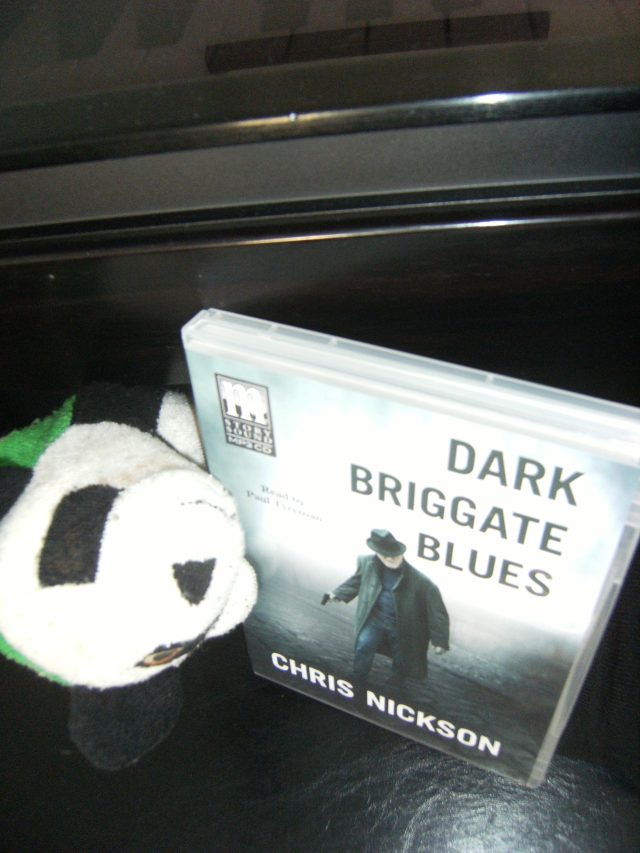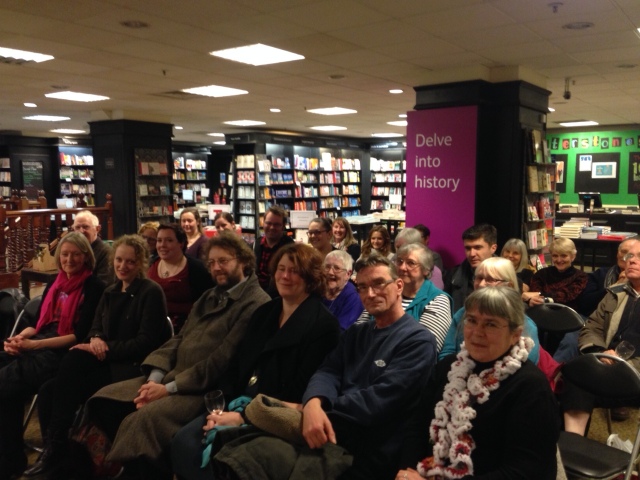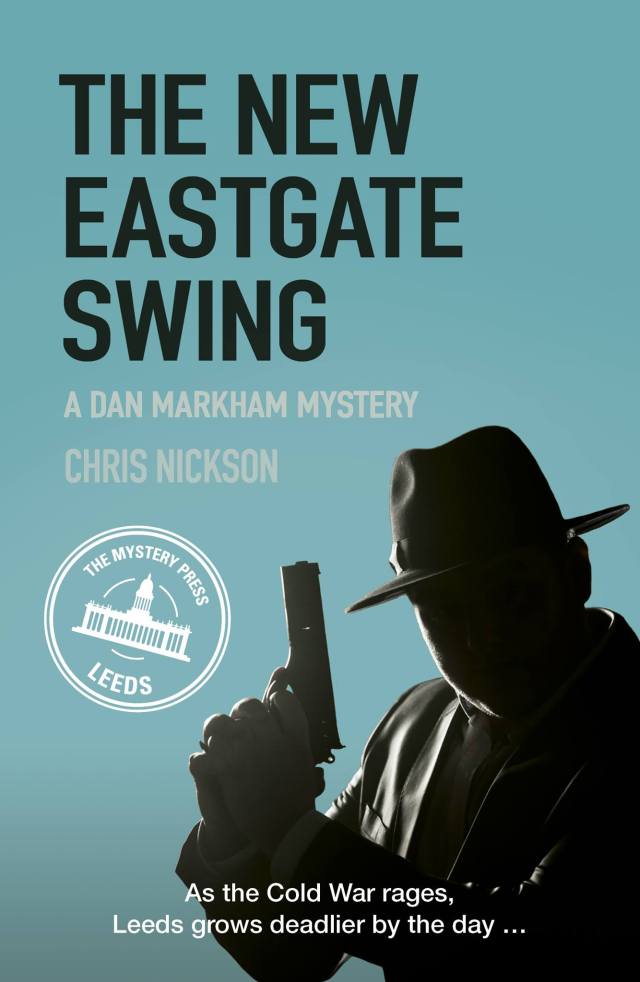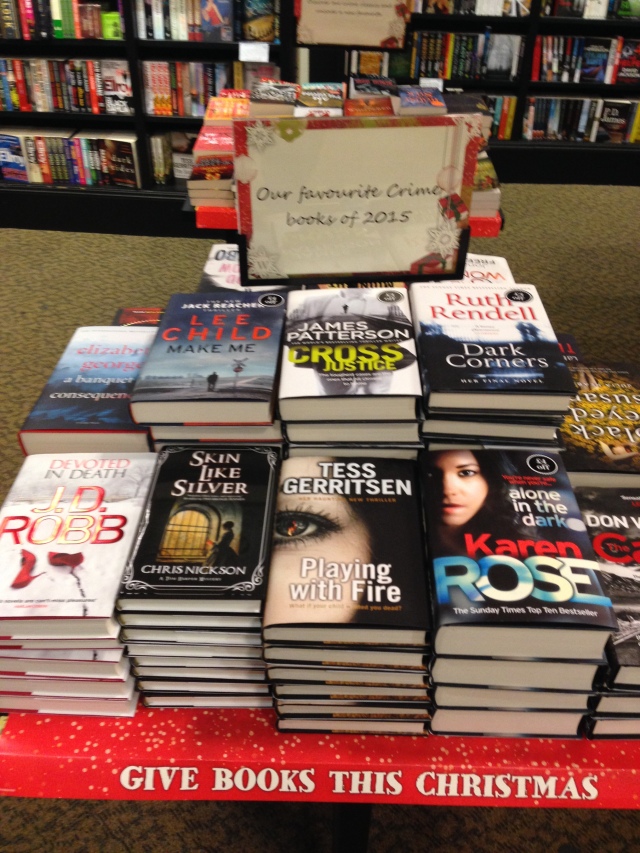It’s just a couple of week until Dan Markham’s back and The New Eastgate Swing is published. It’s 1957, the Cold War is raging, and Markham’s world is going to change. Read about it here…and if you’re in Leeds on February 11, come to the launch at Waterstone’s. There’s even going to be some free wine, I hear.
But in a blatant attempt to whet your appetite, here’s an short extract. Enjoy…
‘I’m sorry,’ she said breathlessly as the waiter pulled out a chair for her. There was a shhh of nylon as she sat. ‘Have you been waiting long?’ The woman held out a hand and he shook it lightly.
‘Not really, Mrs Fox.’
‘Amanda,’ she told him. ‘Please.’
‘Amanda,’ he echoed as she pulled a cigarette from her handbag and he flicked his lighter. ‘Now, what’s all this about?’
She’d arrived late, escorted over by the waiter. In her early thirties, he judged, and wearing a close-fitting grey jersey dress that reached to her knees. It flattered her and she knew it, moving easily on high heels. Dark hair in an Italian cut, subtle makeup and a graceful, Audrey Hepburn face.
He’d had time to sit, staring around the restaurant and smoking. The place was new, fitted out in leather and oak, wanting to appear expensive, solid and timeless. The year before it had been different. Another couple of years it would be something else again.
‘Let’s wait a few minutes for that.’ Her eyes were bright, a deep, mysterious blue. ‘We’ll eat first. I always like pleasure before business, don’t you?’ It was a gentle tease. ‘I’m surprised we’ve never met before.’
‘It’s just how things are, I suppose.’
She carried an air of sophistication, assured, in control. Next to her he felt juvenile, provincial. She ordered quickly, as if she knew the menu by heart. He decided on steak and kidney pie. Very English. Very filling and plain.
‘Then I’m glad to finally change that.’ She flashed a brilliant smile, very white teeth and blood-red lips.
‘You said your husband’s abroad?’
She nodded.
‘Germany. We do quite a bit of business over there, he’s gone a few times each year. Bonn, West Berlin.’ She shrugged. He tried to place her accent. Somewhere in the Home Counties, a good education. But grammar school, not private he decided. Then plenty of polish.
‘I wouldn’t have thought there was much for an enquiry agent over there.’
‘Oh.’ She lit a cigarette and waved the words away in a thick plume of smoke. ‘Still the fallout from the war. Tell me about yourself, Mr Markham.’
‘Dan.’
Amanda Fox nodded her acknowledgement, staring at him coolly.
‘You must have started in this game when you were young.’
‘Seven years ago. I was twenty-one.’
‘Are you good at what you do?’
‘I like to think so,’ he replied with a soft smile.
‘There was some business a while ago, wasn’t there?’ She tapped her cigarette in the crystal ashtray. ‘Before we moved here.’
‘Yes.’ He wasn’t about to say more. If she knew, she’d already read the newspaper clippings and heard the gossip.
The food arrived and they made small talk – the weather, the way traffic grew worse each month – until the plates had been cleared and coffee sat in front of them.
‘Do you know Germany at all?’ Amanda Fox asked as she lit another cigarette and blew smoke towards the ceiling. He tried to read her face but she was giving nothing away.
‘I did my National Service there.’
‘Really?’ Her eyes smiled for a moment. ‘Where were you?’
‘Hamburg, mostly. Some time in West Berlin. I was military intelligence.’
‘Mark was there after the fighting ended. Stayed there for a couple of years, then Vienna. He made some good contacts. Maybe you met him?’
‘Was he an officer?’
‘A captain. Why?’
‘We didn’t mix too much with them.’
‘Of course, sorry. Do you speak the lingo?’
‘A little.’ He’d learned enough to get by. ‘What about you?’ Markham asked. ‘What do you do?’
‘Oh, I just help around the office.’ She said it dismissively, as if she was just a secretary or receptionist. He didn’t believe a word of it.
‘What does your husband do in Germany?’
‘Background stuff, mostly. Checking on people that companies want to bring over. The whole denazification process wasn’t always thorough, shall we say?’ She flashed him another white smile. ‘Mark goes into more depth.’
‘I thought that would be government business.’
‘They farm some of it out. As I said, Mark has contacts.’
He nodded. The old boys’ network in action. The way everything was done in this country.
‘And what would you want from me?’
‘Let me ask you something, Dan. You were in intelligence. Did you have to sign the Official Secrets Act?’
‘Of course.’
‘Good,’ she said with a smile. ‘That makes everything much easier.’
‘Why?’ Suddenly Markham was very suspicious. ‘What do you want?’
‘It’s nothing much. Just keeping an occasional eye on people who end up around here.’
‘People?’ he asked sharply. ‘What people?’
‘Germans who would be useful to our defence industry,’ Amanda Fox glanced around the restaurant before she answered and spoke very quietly.
‘From the West or East?’ That was important.
‘East, of course,’ she replied coolly. ‘We work with the Gehlen people in West Berlin, bring them out, give them new names and backgrounds. I’m sure you can understand why.’
Of course. No one in this country would be happy to have a German around. Not with the war still so close in memory.
‘The government knows?’ He wanted to be certain.
‘It’s their idea, Dan. These men all have good skills.’
‘I don’t understand, why can’t you do it yourselves?’ he wondered.
‘Mark is gone so often. We’re pretty much a one-man band. As I said, I just look after the office. What we need is someone who has the skills and background.’ Now he was certain she knew all about him; this wasn’t lucky dip and hope for the best on her part. ‘We pay generously,’ she added, ‘and it won’t take a great deal of your time.’ She cocked an eyebrow. ‘Does it sound interesting?’
‘Maybe. I’ll need to talk to my partner. He’s ex-police.’
‘All right,’ she agreed, but he saw he’d sprung something unexpected on her.
‘We’ll talk about it and I’ll be in touch.’ He shook her hand as he rose. ‘Don’t worry, he’ll have had to sign the Act, too. I’ll give you a ring on Monday, Mrs Fox.’
‘Amanda,’ she corrected him.
‘Of course. Amanda.’
***
He strolled thoughtfully back through town. There was a weekend eagerness in the Friday afternoon crowds. Women squeezed past the top-hatted doorman to spend their wages at Marshall & Snelgrove’s department store. An older generation sat upstairs in Fuller’s and sipped tea.
He wondered exactly what Amanda Fox and her mysterious husband wanted. More than the job she’d promised, he was certain of that.
Baker hadn’t returned yet. He spent a while cleaning up some of the paperwork, filing notes and pictures and cleaning off his desk. The card table sat there accusingly, a paperback book under one of the legs to keep it steady. They needed something more professional if people were going to take them seriously.
By four he was still on his own, desk clean, everything put away. No rain yet, but the skies were as heavy as slate. Should he wait, or simply call it a day and beat the traffic out on Harrogate Road?
He was just emerging on to the street when he heard a shout and saw Baker turning the corner from Lands Lane.
‘Let’s go and get a cuppa,’ he said as he lumbered close, hands deep in his raincoat pockets, eyes serious.
Upstairs at the Kardomah, Markham ordered coffee from Joyce, the waitress he’d known for years. Tea and a slice of Dundee cake for Baker. He waited until the man had poured sugar into his drink.
‘You don’t look too happy.’
‘Well …’ he began, taking his pipe from a bulging suit pocket and lighting it. ‘I am and I’m not. That Miss Harding was about as helpful as she was yesterday. But I finally got her to let me look at the post that had arrived for our friend in the last few days. She had it locked away in a bureau.’
‘And?’
He pulled out an onionskin aerogramme and let it fall on the table.
‘Just some ‘Dear Occupant’ bumf and this. She didn’t notice me take it. I had a look inside.’
He’d opened it slowly and carefully. Dutch stamps and a Rotterdam postmark. Markham began to read then glanced up quickly.
‘See what I mean?’ Baker asked. ‘That’s Kraut, isn’t it?’
‘It is,’ Markham answered.
‘Why would a Dutchman be writing in German?’
Markham let the question hang as he scanned the words. Either his German was rustier than he thought, or half of this didn’t make sense. He looked again, taking his time, trying to put a meaning to it all. He could follow a few sentences here and there. The rest was gibberish. ‘Did you speak it?’ he asked.
‘Never learnt. Why? What does it say?’
‘That’s the problem. It doesn’t.’
Baker look confused.
‘It’s got to say summat.’
‘A few sentences do. “Took the train to Magdeburg.” Then there’s “Across by Salzwedel.” They’re both in East Germany. A couple more like that, place names in the DDR. The rest is just nonsense.’
‘Are you sure it’s not just you?’
‘Positive.’ He folded the letter. ‘I tell you what, Stephen, we’re in over our heads with this one.’
The telephone was ringing. He blinked his eyes and glanced at the clock on the bedside table. Quarter past five, the luminous hands read. Still pitch dark. Who the hell could it be at this time?
There was a chill in the living room, enough to make him shiver as he lifted the receiver.
‘I hope this is important,’ he said. There was frost on the outside of the window, making the harsh light of the street lamps blurry.
‘I’m not calling you at this hour for my bloody health,’ Baker answered. ‘I’m down at the office. Can you get here?’
‘Why? What is it?’
‘Just get yourself here.’ He hung up, letting the line buzz.




